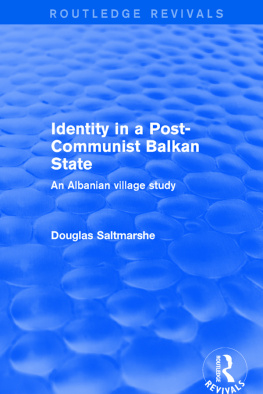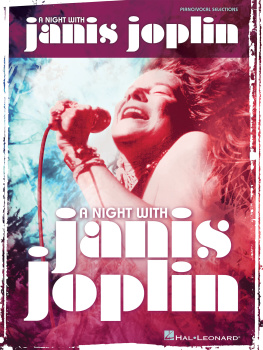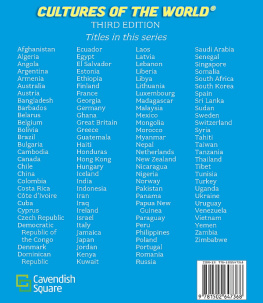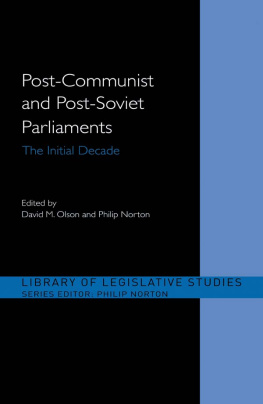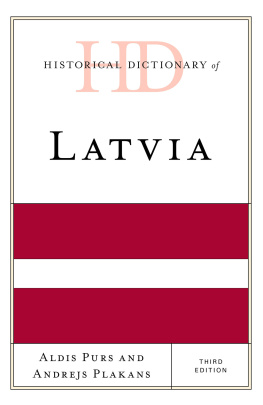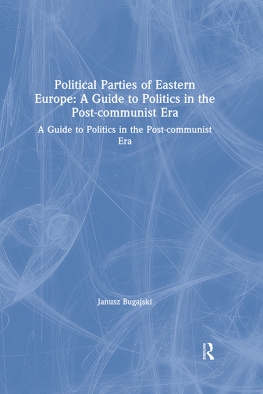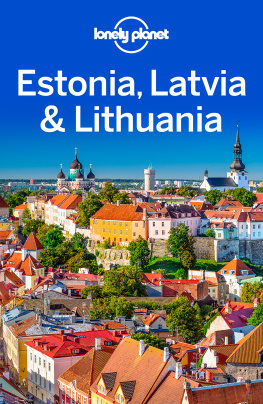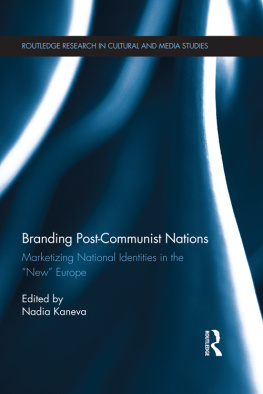First published in the UK in 2017 by
Intellect, The Mill, Parnall Road, Fishponds, Bristol, BS16 3JG, UK
First published in the USA in 2017 by
Intellect, The University of Chicago Press, 1427 E. 60th Street,
Chicago, IL 60637, USA
Copyright 2017 Intellect Ltd.
All rights reserved. No part of this publication may be reproduced, stored in a retrieval system, or transmitted, in any form or by any means, electronic, mechanical, photocopying, recording, or otherwise, without written permission.
A catalogue record for this book is available from the
British Library.
Copy-editor: MPS Technologies
Cover designer: Emily Dann
Production manager: Matthew Floyd
Typesetting: Contentra Technologies
Print ISBN: 978-1-78320-691-9
ePDF ISBN: 978-1-78320-692-6
ePub ISBN: 978-1-78320-693-3
Printed and bound by Hobbs, UK
This book is based on my doctoral thesis defended in 2014 at the Communication and Media Research Institute (CAMRI), University of Westminster. I am most grateful to my Director of Studies Roza Tsagarousianou for her generous help and support, thoughtful guidance and words of inspiration throughout all phases of this four-year-long project. I also would like to thank my second supervisor Peter Goodwin for his advice and encouragement.
This project could not have been possible without all those who agreed to become my informants. Thank you all for your cooperation and contribution sharing your thoughts and experiences with me. My special thanks to all members of the families taking part in the study who kindly let me enter their domestic space. I also wish to thank all those who have helped me in the process of recruitment of respondents for this study.
I am also thankful to media scholars Maarja Lhmus at the University of Tartu and Sergei Kruk at the Riga Stradi University for their careful reading of the thesis manuscript and their insightful comments and suggestions. I am also indebted to all my friends and colleagues both within and beyond academia in Latvia, the UK and elsewhere with whom I had that privilege and pleasure to discuss my thesis at its various stages of progress. Your feedback and encouragement has been invaluable. I also thank the anonymous reviewers for their constructive feedback on the books manuscript. Of course, all the remaining shortcomings of the study are my own responsibility.
Additionally, my thanks go to a number of market research companies in Latvia TNS, SKDS, Factum and GfK for providing me with useful statistical data. I also thank the staff of the National Electronic Mass Media Council of Latvia, as well as people working at the Latvian public radio and television and their commercial competitors, television companies TV3, LNT and Pervyi Baltiiskii kanal, for sharing valuable information with me. I would like to thank also the news agency LETA for providing me with access to its audio-visual archives.
Thanks also to the team at Intellect for their interest in this project and support throughout the books production process.
Finally, and most importantly, it is my family I owe a debt of gratitude to. Thank you for being there through all the ups and downs of this journey over the past few years. Thank you for all your love and support.
T he ongoing Russia-Ukraine crisis has been described in terms of hybrid warfare in which the information war over the airwaves plays an equally prominent role as military actions on the ground. For the Kremlin, Russian state television is its key weapon in the battle over the hearts and minds of audiences at home and abroad. One-sided coverage of the conflict on the Russian state-controlled TV channels, available via cable, satellite and Internet also beyond Russia, has made European governments anxious about the impact such content, commonly described as the Kremlin propaganda, may have on their citizens, especially in former Soviet bloc countries bordering Russia with sizeable Russian-speaking minorities, keen viewers of transnational Russian television.
Also in the ex-Soviet Baltic country of Latvia, its large Russian-speaking minority making nearly 40 per cent of the population, the bulk of them the Soviet-era settlers and their descendants instead of gathering around national television opt for transnational television broadcasting from neighbouring Russia. In the mainstream political discourse, because of this little interest of theirs in national broadcasting and a huge appetite for transnational Russian broadcasting, feelings of national affiliation to Latvia of Russian-speaking audiences and, by implication, their loyalty to the nation have been questioned, and their viewing preferences have been conceived as a threat to the ideals of national integrity, and also national security. In this discourse, these audiences of transnational Russian television are portrayed as gullible victims of indoctrination plans of the pro-Kremlin Russian channels, who are deprived of any agency to make sense of the messages sent to them by these channels. As we shall see, such fears are often unjustified as Russian-speaking minority audiences respond to these messages in a variety of different and also critical ways. The Russian-speaking community in Latvia is a diverse one and such are its readings of the messages of Russian television.
As part of the broader inquiry into the troubled nation-building efforts of the new post-Communist nation-states Latvia and Estonia both having the largest Russian-speaking communities in the Baltics the Russian-speaking minority in these countries has been extensively studied (among those titles published during the second decade of the post-Communist period, most comprehensive perhaps are Lauristin and Heidmets 2002a and Muinieks 2010), and yet the number of the previous inquiries into the Russian-speaking minority that focus on the study of its media practices (e.g. Vihalemm T. 2002; Vihalemm and Hogan-Brun 2013b) is rather modest, and, what is more, it is quantitative approaches that have so far dominated. Also recently, though much talked about, apart from survey data and regular audience statistics Russian-speaking audiences of transnational Russian television in the Baltics have been surprisingly little studied. This is the first study employing an ethnographic perspective to focus on the investigation of day-to-day viewing practices of audiences of transnational television from Russia in the Baltics.
Perhaps the rather moderate attention the study of media activities of the Russian-speaking minority has received should not come as a surprise, given that the study of media audiences as such has been much neglected in central and eastern European media research after the fall of Communism instead, it is macro(system)-level institutional and political economy approaches that have hitherto dominated post-Communist media research (see, for instance, the content of more recent comparative studies on central and eastern European media by Dobek-Ostrowska and Gowacki 2008a; Downey and Mihelj 2012; Gross and Jakubowicz 2013; Jakubowicz and Sksd 2008 and you will see this pattern very clearly). As recently Reifov and Pavlkov have concluded, media audiences people who receive, co-create, interpret, understand and appropriate media messages were rendered almost invisible in the post-socialist study of media (2013: 130). For Reifov and Pavlkov, it is the tyranny of structuralism, preoccupation with the study of the macromedia structures, that explains ignorance of the research of media audiences and the study of peoples agency in central and eastern European media scholarship (see also Reifov 2015).




